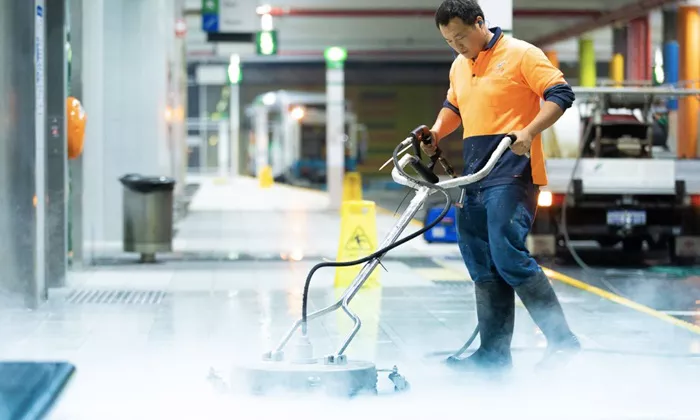When it comes to cleaning tasks, one common question is whether a high-pressure cleaner or a hose uses less water. Both tools serve similar functions, but they work in different ways. In this article, we will explore the differences between these two cleaning methods, focusing on water usage, efficiency, and practicality. We will also discuss the types of pressure washers and their uses, and how they compare to traditional hoses.
Understanding High-pressure Cleaners
A high-pressure cleaner, also known as a pressure washer, uses a motor to pump water at high pressure through a nozzle. This powerful stream of water can remove dirt, grime, and stains from various surfaces like driveways, patios, and cars. The high-pressure stream allows for more efficient cleaning, often requiring less time and effort than traditional cleaning methods.
Pressure Washer Efficiency
High-pressure cleaners are designed to use water efficiently. The water is forced out with greater pressure, which means it can cover a larger area in a shorter amount of time. Because of this, pressure washers often use less water than a standard garden hose for the same task.
Pressure Washer Brands and Types
There are several pressure washer brands available, each offering a range of models. These can be classified into two main types: electric and gas-powered. Electric pressure washers are typically lighter and more compact, making them ideal for smaller tasks like washing a car. Gas-powered pressure washers are more powerful and suited for larger cleaning jobs such as cleaning commercial properties or removing tough stains from driveways.
Pressure Washer Uses
Pressure washers are versatile tools used for various cleaning tasks. Some common pressure washer uses include:
- Washing cars, trucks, and other vehicles
- Cleaning patios, decks, and driveways
- Removing graffiti or tough stains from walls
- Washing outdoor furniture and equipment
Understanding a Garden Hose
A garden hose is a flexible tube used to convey water from a tap to a desired location. It does not have the pressure or power of a pressure washer but can still be effective for many cleaning tasks, such as watering plants, cleaning windows, or washing cars. The amount of water used depends on the water pressure from the tap and the flow rate of the hose.
Water Flow of a Garden Hose
The water flow from a garden hose is usually much less concentrated than that from a pressure washer. A typical garden hose delivers around 8-12 gallons of water per minute, depending on the size of the hose and the water pressure. While a hose may seem like a simple and cost-effective option, it can use more water over time, especially for larger cleaning tasks.
Water Usage Comparison
When comparing water usage between a high-pressure cleaner and a garden hose, it’s important to consider both the flow rate and the cleaning efficiency. A high-pressure cleaner typically uses less water than a hose for most tasks, due to its higher pressure and concentrated water stream. For example, a pressure washer can clean a car with as little as 1.5 to 2 gallons of water, while a garden hose might use up to 50 gallons for the same job.
Which Option Uses Less Water?
Overall, a high-pressure cleaner uses significantly less water compared to a garden hose for similar tasks. This is because the pressure washer delivers water at a high pressure, allowing it to clean more effectively with less water. The concentrated water stream covers a smaller area but with greater force, removing dirt and grime without wasting water.
Environmental Benefits of Pressure Washers
In addition to using less water, pressure washers can also have environmental benefits. By using less water, they reduce the strain on water resources, which is particularly important in areas with water shortages. Furthermore, pressure washers can clean more effectively, reducing the need for harsh chemicals and detergents, which can be harmful to the environment.
Practical Considerations
While a high-pressure cleaner is more water-efficient, it may not be suitable for all tasks. For example, a garden hose may be better for tasks that do not require high-pressure cleaning, such as watering plants or cleaning delicate surfaces like windows. Additionally, pressure washers can be more expensive than garden hoses, so it’s important to consider your specific cleaning needs and budget before making a decision.
Choosing the Right Tool for the Job
When deciding between a high-pressure cleaner and a hose, consider the size of the task and the amount of water you want to use. For small cleaning jobs, a garden hose may suffice. For larger jobs that require more power and efficiency, a pressure washer is likely the better option. If you are considering purchasing a pressure washer, it’s worth looking into pressure washer types and choosing one that fits your specific needs.
Conclusion
In conclusion, a high-pressure cleaner typically uses less water than a garden hose for most cleaning tasks. While both tools are useful for different purposes, pressure washers are generally more efficient and environmentally friendly. By using less water, pressure washers offer a cost-effective and powerful cleaning solution for both home and commercial use.
Related topics:
- What are Portable Pressure Washers? Explore in Detail
- What are Home Use Pressure Washers: Explore in Detail
- Does Pressure Washer Use Less Water?

